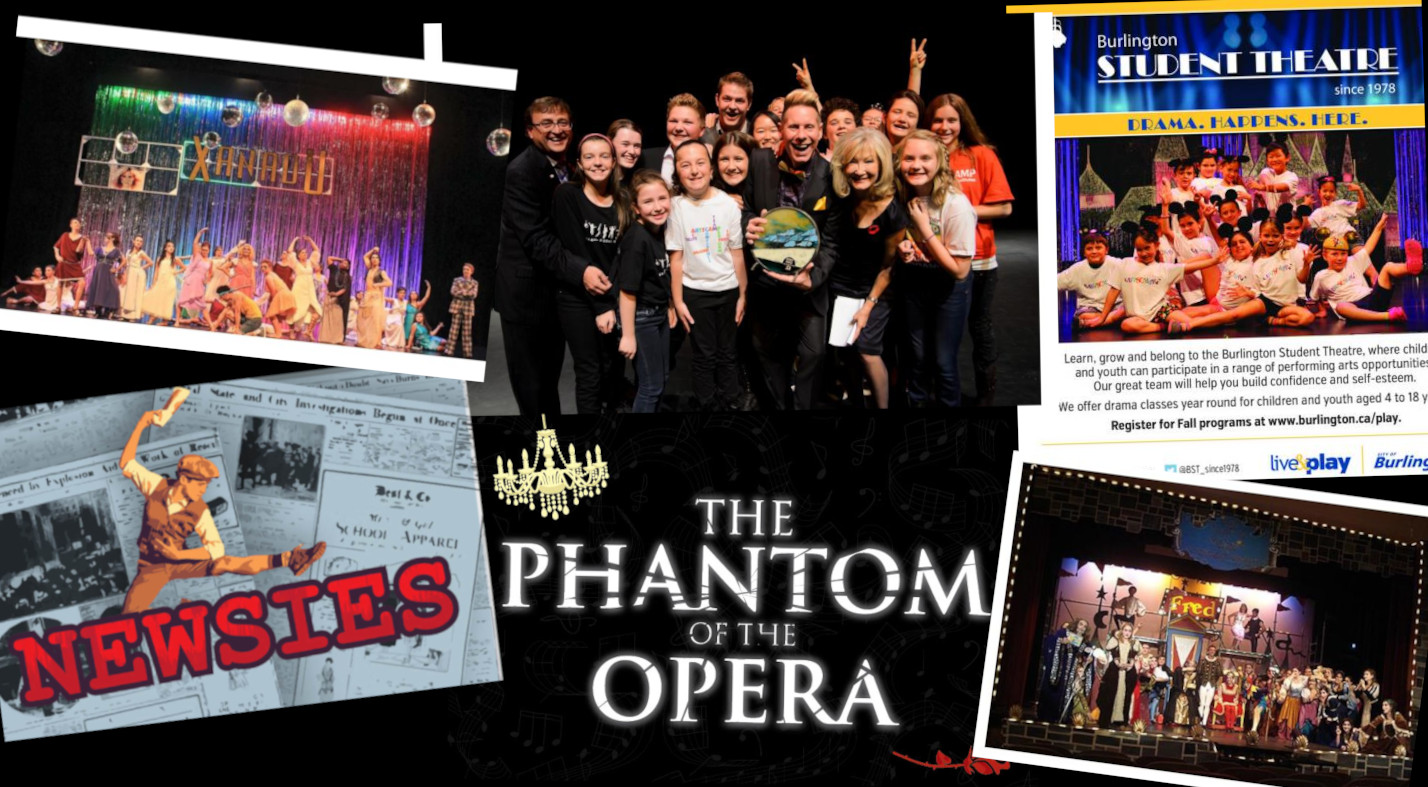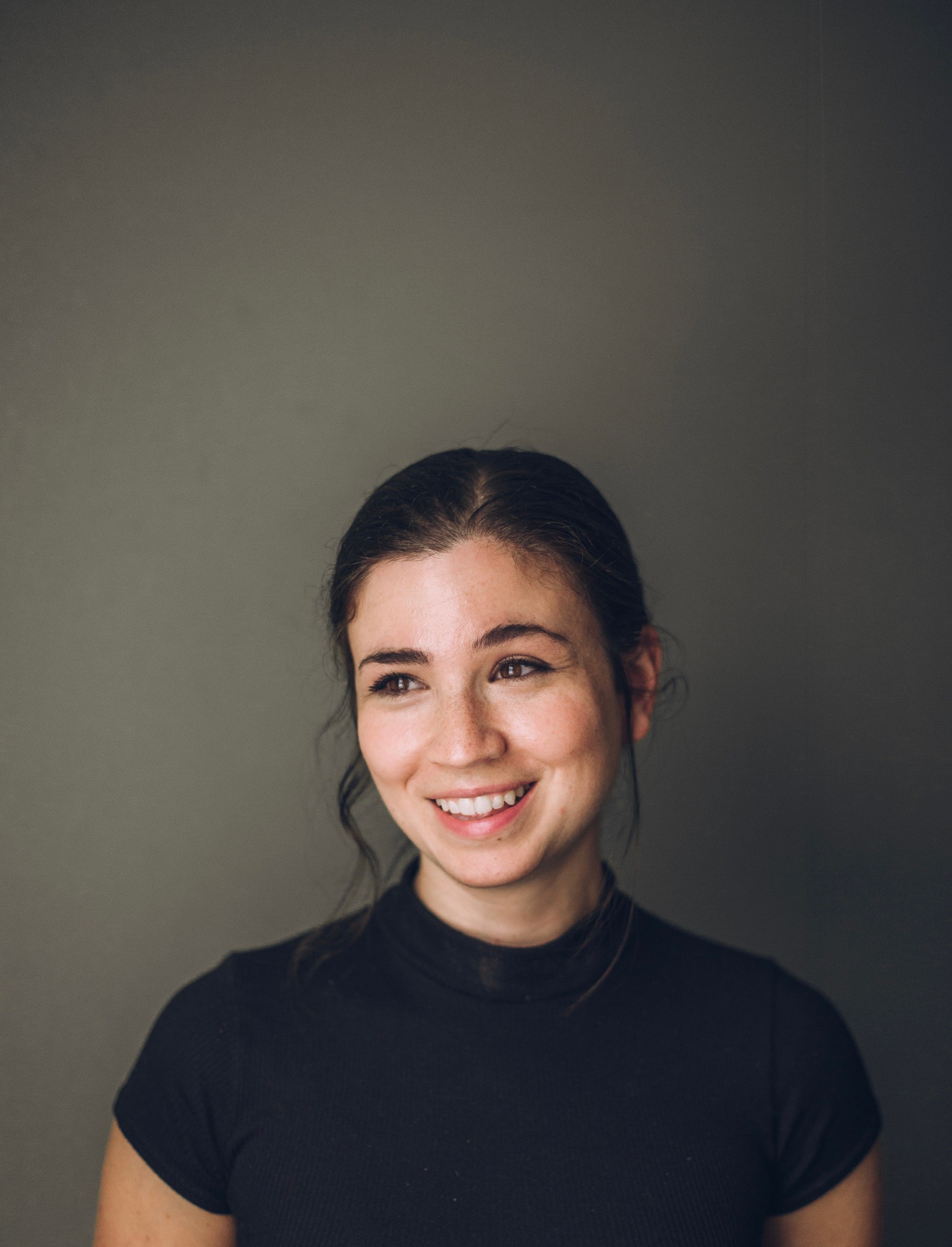By Jack Brittle, Local Journalism Initiative Reporter
Forty-seven years ago, Rainer Noack started a fledgling drama group in Burlington called “Drama for Youths.” In 2024, he is the founder of Burlington Student Theatre, the biggest youth drama organization in Burlington, and the home of several different programs that operate throughout the year, all designed to cater to different age groups and levels of theatre experience.
Student Theatre’s Arts Camp program, which hosts performances of two shows each summer, just finished rehearsing and performing Newsies at the Burlington Performing Arts Centre. They will wrap up the summer season on July 25, with the second play, The Phantom of the Opera.
Noack spoke about the way in which theatre was an outlet and a safe space for him as a kid.
“Think about Burlington 47 years ago,” Noack said. “Not a wildly forward-thinking arts community, right? There certainly wasn’t the diversity that we have now, and the acceptance we have now wasn’t back in the 70s. So my early years in school were not always terribly positive. I found drama as an outlet in grades seven or eight.”
“It was safe to sit in the dark and watch stories unfold,” Noack continued.
Noack said that while working as a camp counsellor for the city’s Department of Recreation, his boss asked him if he would run a drama program.
The rest, as they say, is history. Noack started Drama for Youths, which was eventually renamed Student Theatre. The original 15-week program cost $10 ($48.35 adjusted for inflation in 2024).
“The kids in my first class ranged in age from 10 to 16 years old, and I was 19,” Noack said. The first rehearsals and performances were held in a school gym.
“I guess the driving force behind it was creating a place where people felt safe and where they could be themselves and express themselves, [a place] that I didn’t have as a kid,” Noack said. “So that’s really the origin. And I just had to kind of convince people that I could do it.”
Eventually, he left the school gym and started running Drama for Youths out of Tyandaga Golf and Country Club. The program started with one class a week and eventually expanded to two. Arts Camp started six or seven years after the creation of the Drama for Youths program, according to Noack.
Noack said that the name Student Theatre was coined by him while he was studying at Sheridan College, and he got a friend in the graphic design program to design the logo that is still used to this day. The name “Student Theatre” was adopted in 1979, which was also the first formal year of the program.
Noack said that despite his love of theatre, he didn’t want to become an actor, but rather, a teacher. He remarked that the dynamics of his age have changed over the years when it comes to dealing with kids.
“I was 19 years old trying to be 30, now I’m 60 years old trying to be 30.”
Noack said that during his post-secondary career, there were very few schools offering drama programs, so he had to “learn everything from scratch.”
“I did an honours BA in English at McMaster with a minor in drama, basically being told, ‘By the time you graduate, there’s not going to be drama,’” Noack said. “So don’t put your eggs in a drama basket. Whereas now, look at all the post-secondary careers in tech theatre, theatre administration, managing your own business in theatre, etc.”
“There’s way more than just the acting, right?” Noack continued. “But I didn’t want to do that. I liked what I was doing, I loved the directing. So I was like a sponge. And I read everything I could about drama, researching, and figuring out how to do this thing called drama and directing plays.”
Noack said that the best research was simply going to see plays, which is something he still recommends to students today.
Noack spoke about some of the key skills that kids can gain from the Student Theatre experience.
“The most important thing is confidence, experience, and social skills,” Noack said. “What you get here is emotional intelligence. You get the soft skills. The social skills, the teamwork, the confidence, the things that you need to exist as a human being. To be able to communicate, to be able to listen, and to be able to understand other people.”
Jackson Bennink, a Student Theatre alum, echoed Noack’s comments about the skills gained from the program. Bennink was used to performing in front of an audience, as he played piano from a young age, but said that doing Arts Camp took his abilities to another level.
“Arts Camp elevated that a lot, because it was now actually verbally performing in front of people,” Bennink said. “I’m not sure if it came from that [Arts Camp] or if it just bolstered it, but I’ve never had a problem public speaking.”
Bennink is currently pursuing a career in film and said that his experience in Arts Camp aided him in his journey with acting.
“I think doing it before high school helped me when I went to do drama in high school because it’s like, ‘This is nothing compared to what I did as a kid,’” Bennink said. “If you’re a kid performing in front of this massive arts centre full of people and then you have to do a high school auditorium, it’s nothing. It’s like performing for yourself in the mirror.”
Bennink also said that if not for his experience in Arts Camp, he may not be acting today.
“I do think that when I did arts camp at such a young age, it kind of ingrained it a little more than it might have [had I not],” Bennink said. “It kind of established early on that it was something that I liked doing.”
Bennink commented on the fact that the instructors at Arts Camp always made it easy for all students to participate regardless of their abilities.
“They catered to me,” Bennink said. “They liked to make it easier for me. They weren’t like, ‘Oh, you can’t sing that. We’re going to get somebody else,’ which is what a lot of places would do, even at a young age. So that was a great thing about Arts Camp is that they were there to help you learn and have fun.”
Noack commented on the fact that many of the skills children learn in Student Theatre are applicable to all occupations and facets of life.
“If you think about 47 years of Student Theatre, thousands of students, how many of those people do you think are actually acting on stage or film? A very small percentage,” Noack said. “But how many of those people have careers where creativity, understanding, and confidence are important? How many of those people are fathers? Parents? Teachers?”
“I often think a couple of years in Student Theatre is equivalent to a post-secondary education in emotional social skills,” Noack continued.
Noack also said that it’s very important to him that Student Theatre remains true to its name.
“Because it’s called Student Theatre, it was important to me also that it’s very much student-run because I started it as a student,” Noack said. “I’m very big on giving students autonomy and independence. So every department here has a student working in it who, after a number of volunteer hours and a number of years’ experience can then be hired.”
In the 2010s, the Arts Camp program started to be run at the Burlington Performing Arts Centre (BPAC).
“I think that was a huge boost to the program because we now can offer that level of professionalism,” Noack said. “And we also train students to get to work there, to volunteer there and to get summer jobs there, and eventually to have jobs in theatre in Burlington.”
During the Arts Camp program, a complete show is produced in two weeks. Noack said there isn’t a secret formula to how Student Theatre does it, though.
“When you think of it, it isn’t really two weeks,” Noack said. “It’s really years of commitment. The parents who send their children to Arts Camp know that they’re paying for a quality experience and what their kids are getting in terms of focus and confidence.”
He also said that many of the students participating in the program have had some experience performing beforehand.
“Technically, they don’t come off the street cold,” Noack said. “Most of them have had some kind of training, whether it’s been our training or whether it’s been dance training or whether it’s been vocal training. And this is a platform where they can then use that training. And then with the discipline that we provide and the quality that we provide, they can then use those skills and put it out there. So really, it isn’t magic, it’s careful planning. It’s years of development.”
Noack also explained his philosophy on ensemble casts.
“I’m not big on stars or celebrities,” Noack said. “If you want to be a lead or you want to be the star, don’t come to Burlington Student Theatre. There are other programs you can go to where you can stand out. We work as an ensemble, and by doing so, each participant learns so much more and gets so much more exposure on stage than just a lead character.”
He explained how The Phantom of the Opera came to be picked as one of this year’s shows.
“I always want to do Phantom of the Opera,” Noack said. “And I couldn’t get the rights, but it closed on Broadway in April, it’s been on since 1986. So the amateur rights became available.”
Noack said that both Phantom and Newsies are “epic” and that’s why he chose to put them together.
Student Theatre’s performances of The Phantom of the Opera will take place at 11 a.m. and 2:30 p.m. on July 25. Tickets can be purchased at https://burlingtonpac.ca/events/bst-phantom-of-the-opera/.





